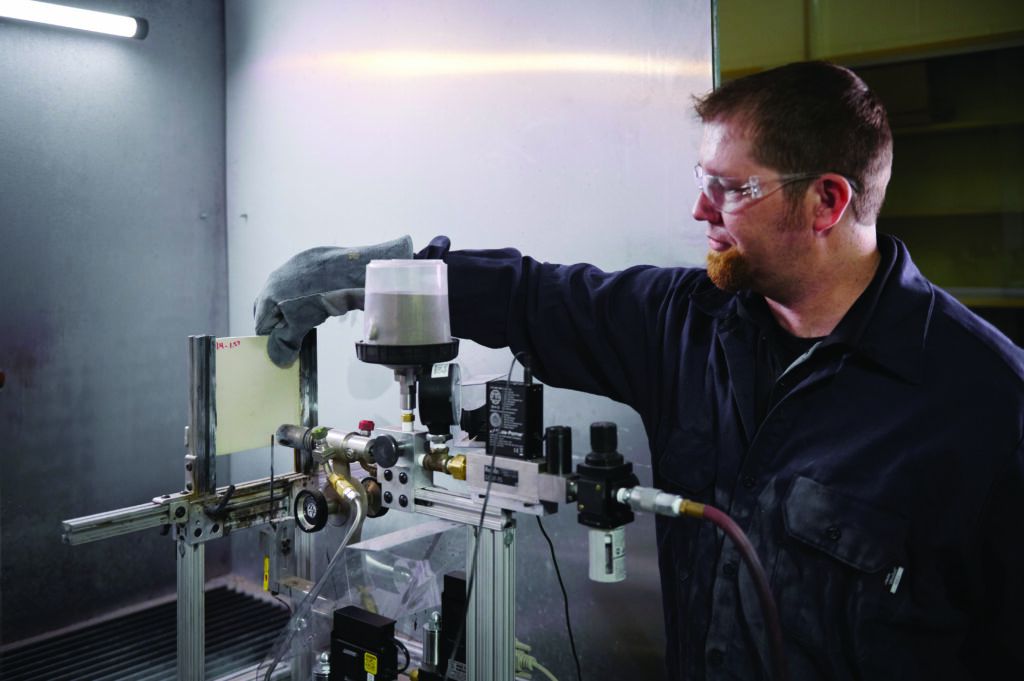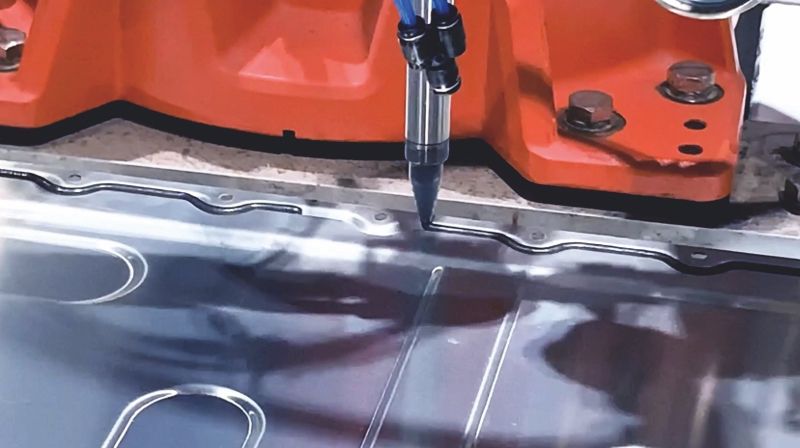In an business shifting at tempo, thermal administration, cushioning, and sealing applied sciences are redefining how battery packs are designed, assembled, and guarded.
Responding to the elevated complexity in battery pack design because of the evolution of EVs and hybrids, science-based innovator, 3M, designs and manufactures barrier supplies, cushioning supplies, and sealants.
With a portfolio that features thermal runaway boundaries, cushioning foams, sealants, and extra, the worldwide firm is addressing crucial points akin to thermal administration, battery pack meeting, value discount, and manufacturing effectivity.
One of the crucial urgent issues in Li-ion battery methods is thermal runaway. To assist deal with this design problem, the corporate provides its 3M Thermal Runaway Barrier 600/700 Sequence, which comprise a compressible, flame-resistant, thermal insulation mat materials. Able to withstanding temperatures as much as 1,200°C, these preserve structural integrity even in excessive environments.
Anja Rohmann is a complicated software engineering specialist. She says, “The mat options non-classified fibers, has good flame resistance, and is designed to assist decelerate warmth switch from one cell to the subsequent. And each sequence will be utilized between cells to assist cut back thermal transport in excessive temperatures.”

Rohmann explains {that a} key problem in battery pack meeting is sustaining constant stress throughout the battery whereas absorbing mechanical stresses and vibrations. 3M Cell Enlargement Foam SJCEF is a flame-retardant microcellular polyurethane foam that meets this want. Its self-tacky properties cut back course of steps and meeting time, serving to to streamline operations. Rohmann provides, “It options customizable compression plateau for constant battery stress and is available in a variety of thicknesses, which implies the fabric can accommodate a number of battery designs with out compromising efficiency,” making it ultimate for each EV and hybrid purposes.
Battery enclosures should be sealed to forestall moisture ingress, shield inside elements, and allow future serviceability. 3M Sealant SZ1000 for EV Enclosure Sealing is a two-part, cure-in-place foam sealant designed to fulfill these buyer wants. Providing flame retardancy, wonderful growing older sturdiness, and automatic allotting compatibility, it helps producers to fulfill strict enclosure specs whereas sustaining manufacturing throughput. Rohmann explains that whether or not utilized in EVs or hybrids, the sealant performs a crucial position in sustaining long-term battery pack integrity in various environmental situations.
In line with Rohmann, product improvement within the battery sector is something however static. Certainly, OEMs are frequently refining their designs to fulfill shifting efficiency, value, and security targets. She feedback, “The client develops and optimizes their battery designs very dynamically in response to continually altering challenges from the business. This could typically be very short-term. Our expertise is essential in anticipating sure materials properties or incorporating them prematurely.” This speedy iteration cycle presents a problem for materials suppliers, however 3M is ready to stay agile with out sacrificing high quality or reliability.
3M’s method to innovation hinges on direct engineer-to-engineer collaboration; that is what the corporate refers to as ‘bench-to-bench’ improvement, upon which Rohmann expands: “Shut collaboration with the OEM is essential for the success of improvement. As soon as key alternatives are recognized, having engineers sit down and speak by technical challenges allows everybody to know the place the ache factors are. Generally these are within the product idea, typically in how you can combine an progressive thought into the manufacturing course of. By way of shut collaboration, each events have the chance to study concerning the feasibility, improvement potential, and limitations of one another.”

Certainly, it’s right here when an OEM’s challenges turn into 3M’s challenges. “A main concern of OEMs is value discount,” she says, including, “Decreasing the price of battery packs to make electrical autos and different purposes extra reasonably priced is a significant problem.” This, she reveals, entails optimizing manufacturing processes and materials utilization, as nicely balancing efficiency with materials and manufacturing prices.
After which there are challenges related to thermal administration. As vitality density will increase, so does the problem of better warmth launch. “Effectively managing the warmth generated to deal with security and efficiency is crucial,” she displays, stating that superior supplies with excessive thermal stability and low conductivity are at present being developed by 3M to deal with this.
Whereas early battery pack designs targeted on single-purpose supplies, over time the business has shifted to multi-purpose supplies, as Rohmann explains, “With better deal with car affordability and industrialization, OEMs are on the lookout for options that not solely meet the appliance objectives, however achieve this in a means that may be simply built-in into their manufacturing processes.” She reveals that OEMs are additionally on the lookout for materials options that assist deal with a number of necessities distinctive to the brand new chemistry and kind components which might be available on the market.
“Within the case of thermal runaway boundaries, which means the necessities for the chosen supplies nonetheless want to stay extraordinarily excessive when it comes to thermal stability, however they have to now additionally provide wonderful elasticity and prolonged sturdiness.” This nuanced steadiness of properties requires a deep understanding of supplies science and steady suggestions from real-world purposes, one thing which 3M is uniquely positioned to perform.
It’s plain that security and environmental rules are additionally shaping product improvement, as Rohmann feedback, “Rules for EVs and thermal occasions are designed to assist deal with security, efficiency, and environmental compliance.”

Right here, environmental mandates, such because the EU Battery Directive and Finish-of-Life Automobile Directive, are influencing designs by encouraging using supplies that may assist with disassembly and recycling. These components are integrated into the corporate’s R&D plans to take care of future-ready options.
Whereas EV and hybrid battery packs face totally different challenges, akin to vitality density for EVs and ICE integration for hybrids, many options will be shared or complementary between platforms. Advances in battery know-how, thermal administration, and management methods for one sort can typically be tailored for the opposite,” says Rohmann “and enhancements in manufacturing effectivity and value discount methods can profit each full EVs and hybrids.”
This cross-pollination of concepts and applied sciences is what is going to allow strong, versatile options which might be able to addressing the complete spectrum of EV necessities. “By addressing these challenges with progressive options and leveraging synergies between full EV and hybrid applied sciences, we will improve the efficiency and competitiveness of each varieties of autos,” Rohmann concludes.


